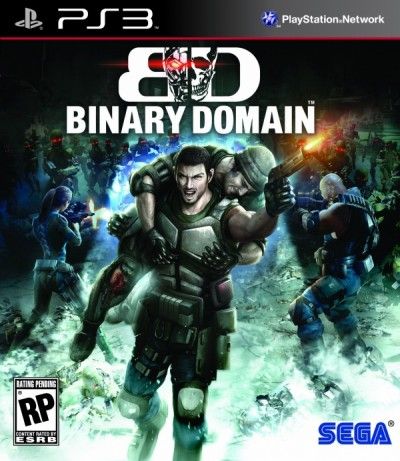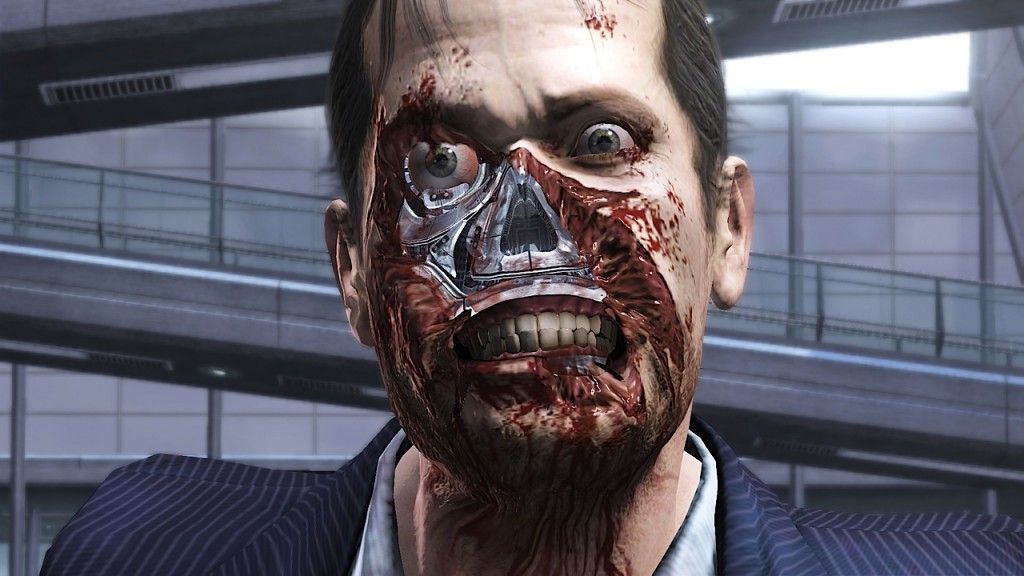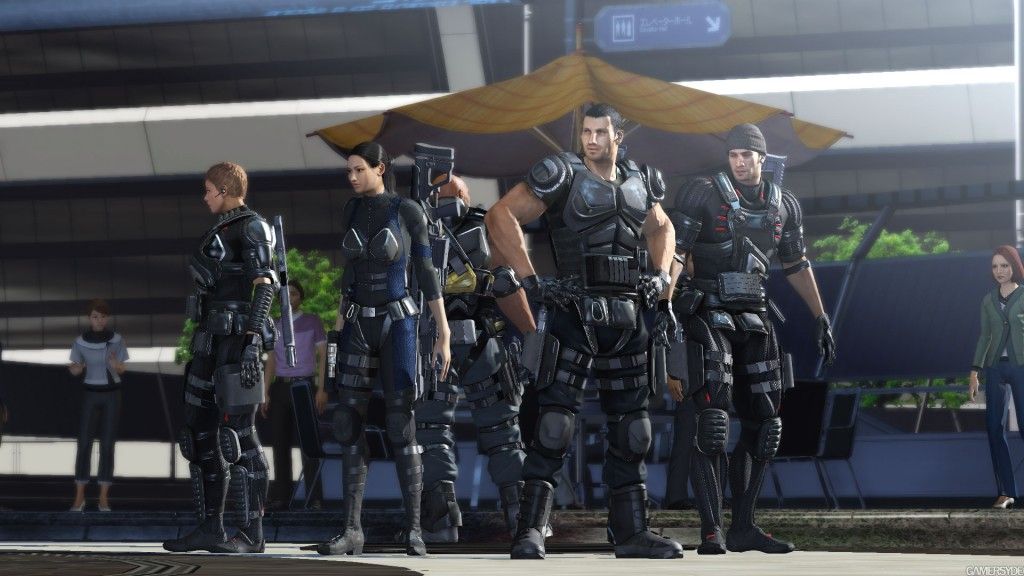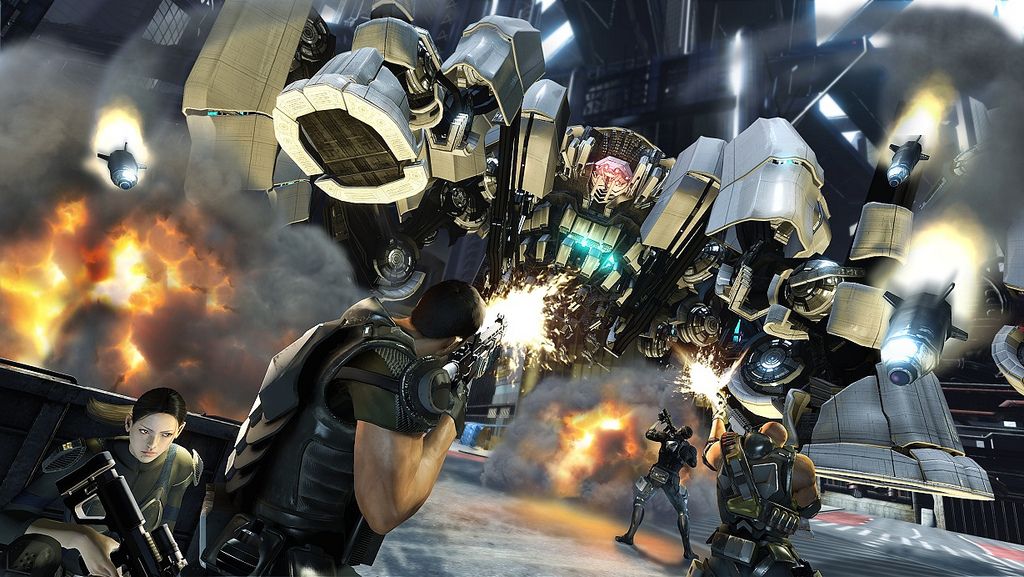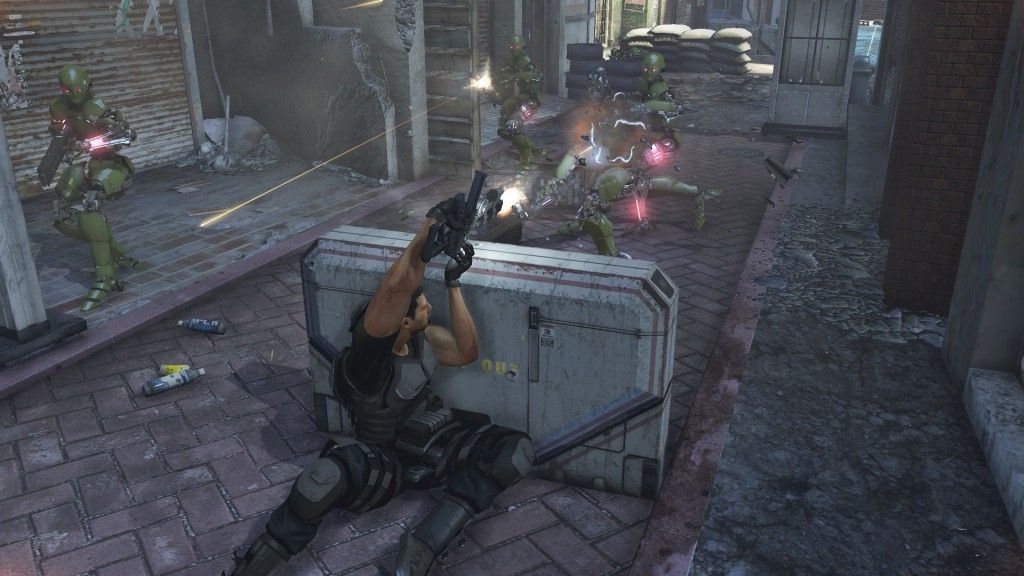What do get when you mix up James Cameron’s Terminator, Will Smith’s iRobot, and your typical third person shooter? Well if you ask the folks from Sega’s Yakuza studio, they’ll probably direct you to their new IP, Binary Domain. We’ve had this one on our radar since right before E3 of last year and have had moderately high hopes since then. So does it pan out the way we hoped? Or will it simply live in “poor choice for a video game title” infamy? Read on to find out.
Binary Domain’s story takes pace in the year 2080, where advancements in robotics technology is all the rage. Fourty years prior to the events in the game, the nations of the world ratified the New Geneva Convention, an international treaty where all of its members would agree that the robots and A.I. being created would refrain from having human characteristics such as appearance or emotions. The two biggest names in this “robot renaissance” would agree to the terms, or so it seemed.
Yohji Amada, founder of the Amada Corporation, argued that rival U.S. robotics creator Alexander Bergen of the Bergan Corporation, stole many of the his designs and patents. Amada would lose everything in his legal battle against the American company, which in turn drove him to the brink of insanity. He would become obsessed with proving everyone wrong. Against the wishes of The Geneva Convention, he begins work on the most human-like A.I. the world has ever seen, an A.I. so authentic that even the robot doesn’t even know that it isn’t human. These humanoid robots would earn the nickname “hollow children.”
To protect the integrity of the New Geneva Convention of 2040, the United Nations forged a task force known as the International Robot Technology Agency (IRTA). As part of that group, there are multinational teams known as “rust crews" whose job is to crack down on any nations or companies violating robot building laws. You play as Dan, part of a rust crew sent to investigate the Amada corporation after a foiled assassination attempt led by hollow children against Alexander Bergan, the president of the rival robot creating company.
On the outside looking in, the game’s story on paper is pretty solid. Much of the game’s narrative is also used as a vehicle of sorts to dissect other themes, such as social classes in society. It doesn’t go too overboard with it, but it’s a nice -- dare i say Kojima-esque -- move.
Binary Domain is very much a third person shooter but it also relies heavily on squad based combat. One great move on the developers part is that you’re not stuck with one stationary group of characters. Instead, as the game’s narrative unfolds and you encounter more characters, you’ll be able to swap in and swap out the different folks you pick up along the way.
Also included is a weapon leveling system, not just for Dan (the protagonist) but for every character that joins your squad. Upgrades are achieved by exchanging credits earned in combat and pouring them into some conveniently located upgrade stations scattered along the way (kind of like Drebin in MGS4). At these upgrade stations you can also purchase skill points that can add attributes to each of your characters in various categories.
The game puts your decisions into play and does this by using something known as the consequence system. It’s a technique of using branching dialogue to address the concerns of your squad-mates. The way consequences are factored in is by the use of trust. Your answers or comments to the members of your team will determine whether or not they trust you and that trust will decide whether or not they’ll cover you or go charging in during a firefight when ordered to.
With the consequence system in mind, the game’s creators thought it would be a great idea to use your headset to have this trust building interaction with your team. To put it lightly, it wasn’t a good idea. At all. No, I’ll take that back because I can see where the intent was, unfortunately the execution was fairly below par.
http://www.youtube.com/embed/GP9SSkNvVaQ
I’m not sure if the voice technology that was used was something brought in by an external team but it’s something that should not be used again. Not only could it not differentiate between the words ‘yes’ and ‘no’ at certain times but it would register words at random (like f*ck) when I was complete completely silent.
In terms of gameplay, Binary Domain takes a page directly from the books of every (good) third person shooter you’ve already played. This is one area where the eastern influence doesn’t interfere with the mostly western experience. The cover system is both responsive and fluid, making the ability to move from cover to cover seamless.
Enemy A.I. is also something that I need to highlight here. What makes every fight as intense (and fun) as the one that came before it is the way the enemy robots are constantly trying to flank and gain position on your location and dismantling said robots is just as fun.
Yes, Binary Domain let’s you take apart your enemies piece by piece. And it will actually help you out in certain situations, especially when taking down shielded enemies. There’s nothing like going into a room full of bad guys and cutting them down literally in half.
The games overall presentation is where things head a little south. The thing is, this is a Japanese developed third person shooter. While I’m a huge fan of the Yakuza studio and their work on that series, in Binary Domain -- a game that is clearly targeted to a more Western audience -- there may be a little too much of that Eastern influence for the average gamer to take.
It doesn’t have the over-stylized imagery of Vanquish or Bayonetta, but once you start hearing some of the cheesy music, or playing through some more of the grinding areas later in the game, you start getting more and more of that Eastern game design influence. While I’m a bit fan of those kinds of games, it just never felt right in this title.
At times, it can seem like you’re playing two different games. The first one has a solid plot, story, and characters. The second has bad music, even worse dialogue and sometimes goofy situations.
Also featured is an online portion where you can take to Xbox Live or PSN for some five-on-five action. All of the usual third person shooter modes are on-board here, but this definitely won’t be played for it’s multiplayer. While I had some fun in the matches I played, I only see the most devoted fans of the game taking things online for more action.
Looking back at the game after the credits rolled, I have to say that my overall time with it was enjoyable. Sure, the whole voice command experiment didn’t work as advertised and some parts of the game can get a bit too silly, but, at it’s core, Binary Domain was an entertaining eight-hour ride. It’s Eastern influence may turn off some gamers used to a more “traditional” third person shooter, but I still think it’s worth a look if you enjoy a good game and story.
Binary Domain
- Released
- February 28, 2012
- Developer(s)
- Ryu Ga Gotoku Studio
- Publisher(s)
- Sega
- Genre(s)
- Third-Person Shooter
- ESRB
- M For Mature 17+ due to Blood and Gore, Intense Violence, Strong Language, Suggestive Themes

